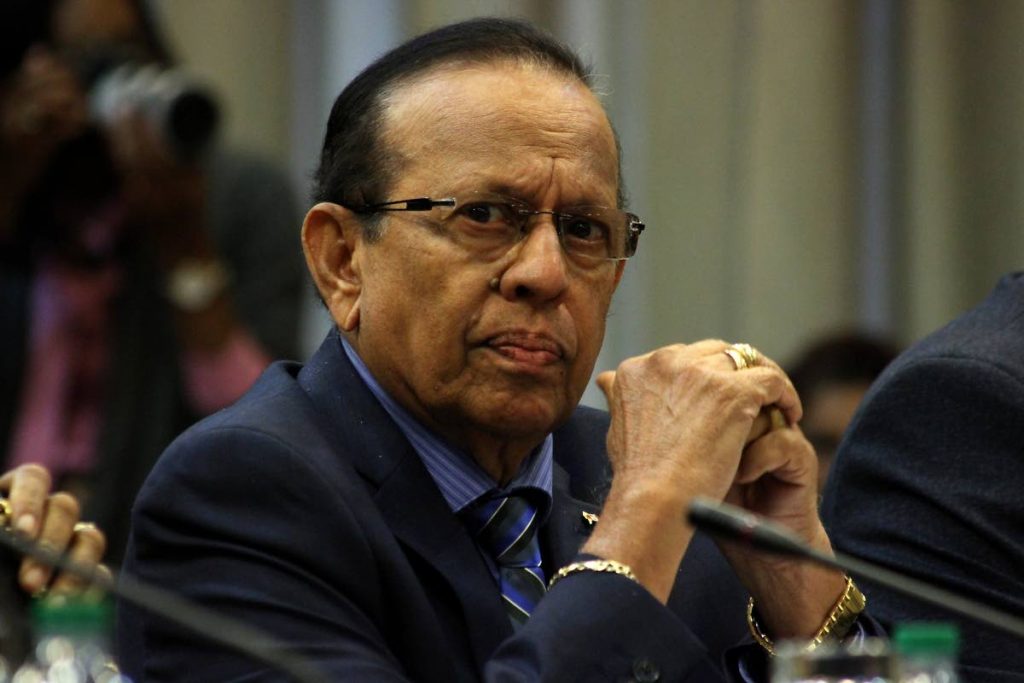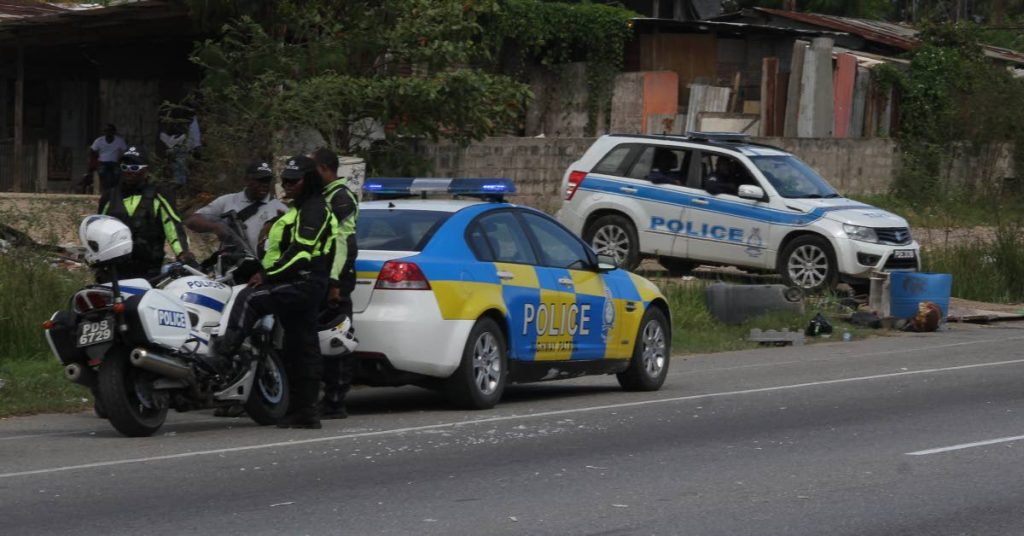Area of darkness

Serious and long-standing human resource lapses within its structure have contributed to the inefficiencies that continue to plague the Police Service.
So said criminologist and former chairman of the Police Service Commission (PSC) Prof Ramesh Deosaran as he weighed in on the recently-released findings of the Police Manpower Audit Committee, which was laid in the Senate on November 28 and is now a public document.
In fact, Deosaran, who chaired the Cabinet-appointed, eight-member committee, said in a Sunday Newsday interview that the human resource challenge confronting the Police Service was, perhaps, the most telling truth of the exercise.
Calling it “an area of disaster,” Deosaran said members of the committee were dumbfounded by the extent of the problems in this area.
“We knew there were serious challenges within the Police Service–the low detection rate alongside the rising murder rate and the loss of public confidence in the Police Service. And we knew there were difficulties in appointing a Police Commissioner over the years.
“But a telling truth was when we probed into the belly of the beast, as it were, that is getting inside the Police Service, the different units, the different departments, we were surprised to find several areas of darkness, which we eventually called, because of the immensity of the inefficiencies, an area of disaster.”
Deosaran said even the police and the Fitzgerald Hinds-led Joint Select Committee (JSC) probing national security, because of the data produced, found that the human resource framework and processes in the Police Service “need to be in intensive care for quick remedies.”
“Because if your human resource structures, systems and processes are not properly in place and operationalised, a lot of what the Police Service eventually do in terms of performance will not be as satisfactory as it should be. We were surprised to know the extent of the human resource deficiencies.”
Alluding to the audit committee’s interviews with stakeholders as well as other evidence gathered for the 700-page audit report, the criminologist said abuse of leave was a major issue.
“There were senior officers with leave exceeding 300 days. Some have over 400 working days and that has serious implications.”
Senior officers with substantial leave, Deosaran said, produced undeserving stress on the particular officer “because policing is a stressful job and not to take your leave for so many days that is due to you, creates a psychological challenge for performance.”
He asked: “How will the issue of leave be solved? Would you buy them off because some people are near to retirement. And, if you have two, three years again to retire and you have 400 working days leave, how could you reconcile that.”
Deosaran argued the situation will create a challenge for acting appointments.
Low public confidence in the Police Service, Deosaran said, was another reality that must be dealt with expeditiously.
“We knew there was low public confidence but when we measured the extent of low confidence in the police by gathering all of the data, including data from 500 police officers– even the police admit that there is very low public confidence in them and they have to improve themselves.”

He made it clear, though, the likelihood of improving overall performance was slim given an inefficient human resource base, improper records and an ad hoc system for staff appraisals.
“The police themselves tell us that appraisals have not been done for several years. Some fellas tell us they never had a staff appraisal for three years. That responsibility is first on the next senior officer to the officer and then it eventually goes upwards for approval. It is a question of leadership.”
Deosaran contends there are some critical challenges within the Police Service that must be urgently dealt with.
“Our view as a committee is that not everything has to wait until parliamentary approval.”
The former independent senator said the “vacation dilemma” could be addressed without having to resort to the Parliament.
“The Police Service Act has enough rules to have the vacation leave properly managed. Even the human resource challenges, you can deal with a lot of those things as quickly as possible.
“Staff appraisal is already in the books. It tells us what the Police Commissioner should do, what the senior superintendent should do. And those things apparently have not been done.”
Aware of the numerous reports that have been compiled into the operations of the Police Service over the years – some of which, he said, alluded to many of the issues that persist today – Deosaran was hopeful the manpower audit would not suffer the same fate as its predecessors.
“The Prime Minister’s response and the JSC’s favourable response so far are quite encouraging in terms of having this report not put on the shelves and not been able to rust and dust. With those public pledges the public should be inspired to know that something will happen definitely and positively to the Police Service.
“I am extremely hopeful. In fact, it will be a disappointment not only to me but to the country that so much work has been done within the short time frame and we have been able to deliver what is now recognised as a high-quality report from other people.”
Prime Minister Dr Keith Rowley, who was presented formally with the hefty report, in two volumes, on October 17, has pledged publicly to implement the recommendations the Cabinet considers and approves by taking them through a JSC. Those recommendations that require a special majority, Rowley said, will be negotiated with the Opposition.
Rowley is on record as saying he will use the report and its recommendations as a blue print for police reform.
“That is an important pledge. The prime minister said so publicly because we asked him what will happen to this report? And, I told him quite plainly that we don’t want it to suffer a similar fate as previous reports.”
In the interim, though, Deosaran said the committee has suggested the Cabinet hold its hand on the recruitment of new municipal and special reserve officers.
“In the context of what the Parliament or Government should do now or not do, the audit committee has strongly recommended for example and with good reason that the addition of more municipal police officers and SRPs be put on hold until the committee’s recommendations are accepted.”
Deosaran said the committee, in its audit, noted the governance structure for municipal police was “now disfigured and dysfunctional” and with respect to the SRPs, “serious questions about entry qualifications and allocation of duties.”
“We feel it is now undesirable to pile numbers upon numbers without the required quality assessments.”

Comments
"Area of darkness"